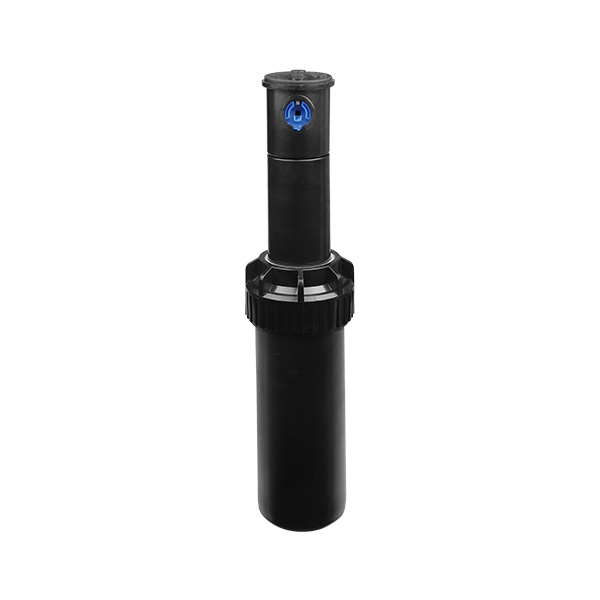Exploring New Technologies in Sprinkler System Design
In modern agriculture, **efficient water management** is crucial. Sprinkler sprinkler systems play a pivotal role in irrigating crops, especially in regions where water resources are limited. With advancements in technology, the design and functionality of these systems have evolved significantly. This article explores how new technologies are reshaping sprinkler system designs, making them more efficient, sustainable, and user-friendly.

The Importance of Efficient Irrigation Systems
The global agricultural landscape is changing, and with it, the challenges of water scarcity and climate variability. Efficient irrigation systems are essential not just for crop yield but also for **water conservation**. By optimizing water use, farmers can ensure sustainability and enhance productivity. Understanding the importance of innovative sprinkler designs allows agricultural stakeholders to make informed decisions that benefit their operations and the environment.
New Technologies in Sprinkler Systems
The advent of technology has revolutionized sprinkler system design. Below are some of the most significant advancements currently making waves in the agricultural sector.
Smart Irrigation Systems
Smart irrigation systems utilize advanced technologies to optimize water usage. These systems employ **weather data** and **soil moisture sensors** to determine the precise watering needs of crops. By automating irrigation schedules based on real-time data, farmers can reduce water waste and ensure that plants receive the appropriate amount of moisture.
Drone Technology in Irrigation
Drones have emerged as powerful tools in agriculture. They can survey large fields quickly and efficiently, providing real-time data on soil conditions, crop health, and moisture levels. By integrating drone technology with sprinkler systems, farmers can achieve **targeted irrigation**, applying water only where it is needed most, thus conserving resources and maximizing crop yield.
Sensor Technology for Precision Irrigation
The integration of **sensor technology** in sprinkler systems allows for precision agriculture. Sensors can monitor soil moisture, temperature, and nutrient levels, providing valuable data to farmers. This information facilitates informed decisions regarding irrigation, leading to optimized water usage and improved crop performance.
Automated Control Systems
Automated control systems are revolutionizing the way farmers manage their irrigation. These systems can be programmed to operate based on specific conditions, such as weather forecasts or soil moisture readings. By automating irrigation, farmers can ensure consistent crop hydration while significantly reducing labor costs and human error.
Sustainable Practices in Sprinkler Design
Sustainability is at the forefront of modern agricultural practices. New sprinkler designs are increasingly focusing on eco-friendly solutions that minimize water usage and reduce environmental impact.
Water-Efficient Technologies
Water-efficient technologies, such as low-flow sprinklers and **drip irrigation systems**, are gaining popularity. These systems deliver water directly to the plant's root zone, reducing evaporation and runoff. By implementing such technologies, farmers can significantly lower their water consumption while maintaining healthy crops.
Recycling and Reusing Water
Another sustainable practice involves recycling and reusing water. Innovative sprinkler systems can be designed to utilize greywater or rainwater harvesting, reducing reliance on freshwater sources. By incorporating these practices, agricultural operations can enhance their sustainability and reduce overall costs.
Future Trends in Sprinkler System Design
As technology continues to advance, several trends are emerging in sprinkler system design. These include:
Integration with IoT
The Internet of Things (IoT) is set to revolutionize irrigation systems. By connecting various components, farmers can monitor and control their sprinkler systems remotely. This integration allows for real-time adjustments based on changing environmental conditions, optimizing water usage.
Artificial Intelligence in Irrigation
Artificial intelligence (AI) is becoming increasingly relevant in agriculture. AI algorithms can analyze vast amounts of data from various sources, helping farmers make informed decisions regarding irrigation. By utilizing AI, farmers can enhance efficiency and productivity while conserving resources.
Enhanced Data Analytics
Data analytics tools are evolving, enabling farmers to process and interpret irrigation data more effectively. By leveraging advanced analytics, farmers can identify trends and optimize their irrigation strategies, leading to improved crop yields and resource management.
Case Studies: Successful Implementations
Several farmers and agricultural operations have successfully implemented new sprinkler technologies, resulting in significant improvements in water efficiency and crop yields.
Case Study 1: Smart Irrigation in Almond Farming
A California almond farm adopted smart irrigation systems that utilize soil moisture sensors and weather forecasting. By automating their irrigation schedule, the farm reduced water usage by 30% while increasing almond yields. This case demonstrates the effectiveness of integrating technology into traditional farming practices.
Case Study 2: Drone-Assisted Irrigation Management
In Australia, a vineyard implemented drone technology to assess irrigation needs across its fields. Drones provided real-time data on soil moisture levels, allowing the farm to apply water more efficiently. As a result, the vineyard decreased water usage by 25% and improved grape quality.

评论
发表评论